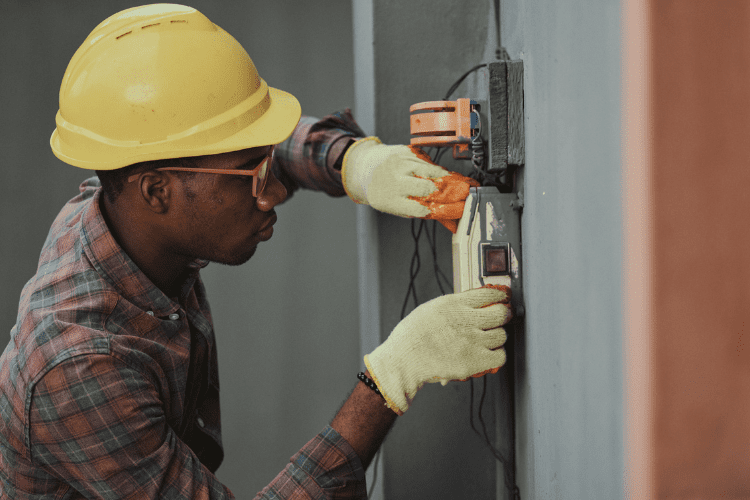Why Becoming An Electrician Is A Smart Move In Today’s Job Market

Are you trying to find a rewarding career but don’t want to spend thousands on a degree you might not use?
You aren’t alone. As college becomes more common, getting one won’t set you apart from thousands of graduates that get a degree each year.
In fact, we’ve seen twice as many graduates as jobs employ them in the past 20 years.
So what can you do instead?
With a surge in construction, home renovations, and smart technology, the demand for skilled tradespeople like electricians is skyrocketing.
If you’re looking for a stable career or thinking of changing your current job, becoming an electrician could be something to look into. Let’s explore this career!
How Is The Job Market Changing?
There’s no doubt that the last decade transformed the job market. From AI to automation, we’re seeing another technological revolution that’s changed employment patterns, desired skills, and more.
As an example, look at the recent layoffs that have happened. Most were tech companies looking to downsize their workforce after overhiring, automating their tasks, and more.
On the other hand, tradespeople like electricians are constantly in demand, and the demand for these skills will only keep going up.
With new construction projects, electrical systems, and the maintenance of the existing infrastructure, the need for tradespeople won’t go away anytime soon.
What Exactly Does An Electrician Do?
If you think an electrician’s job is only replacing light bulbs or fixing outlets, think again!
Electricians are essential for keeping everyone’s lights on wherever they are. They’re in charge of installing, maintaining, and repairing electrical systems in your home, the office, and any other locations that need their services.
Besides general maintenance, they can read blueprints, replace old wiring, inspect electrical components, and ensure your home’s system meets basic safety standards.
Electricians also play a significant role when installing a new electrical system or upgrading an old one for buildings.
How Much Can You Make With This Job?
While your earning potential can change based on experience, specialization, and location, most electricians earn a pretty comfortable salary—even when starting out.
To give you an example, let’s take a look at an entry-level electrician. Even with little experience, most of them earn an average of $20 to $30 an hour. That’s an annual salary of between $40,000 to $60,000 per year.
That hourly rate could easily double or even triple in a few years, depending on where you work.
How To Become An Electrician
Finding a job as an electrician requires a mix of vocational training, hands-on experience, and formal education. It all depends on which path you decide to take and if you choose a specialization.
Most electricians start with a high school diploma, followed by a vocational program, apprenticeship, or electrical engineering trade school.
Apprenticeships typically last 4-5 years and combine on-the-job training with classroom instruction.
After you finish the program, you’ll need to take a final exam to become a licensed electrician in your state.
What Does The Future Look Like For Electricians?
Electricians have a bright future ahead of them, making it a perfect choice if you’re looking for job security.
The Bureau of Labor Statistics projects the profession to grow by around 7% in the next decade, making it as fast as other occupations.
As our world becomes more digital and energy-conscious, electricians will be at the forefront of upgrading our infrastructure to support these changes.
The Bottom Line
Becoming an electrician can be a wise move if you want a relatively stable career in an ever-changing job market.
It has solid income potential, many job opportunities, and growing demand. Someone will always need a reliable electrician in one form or another!
Read More:










